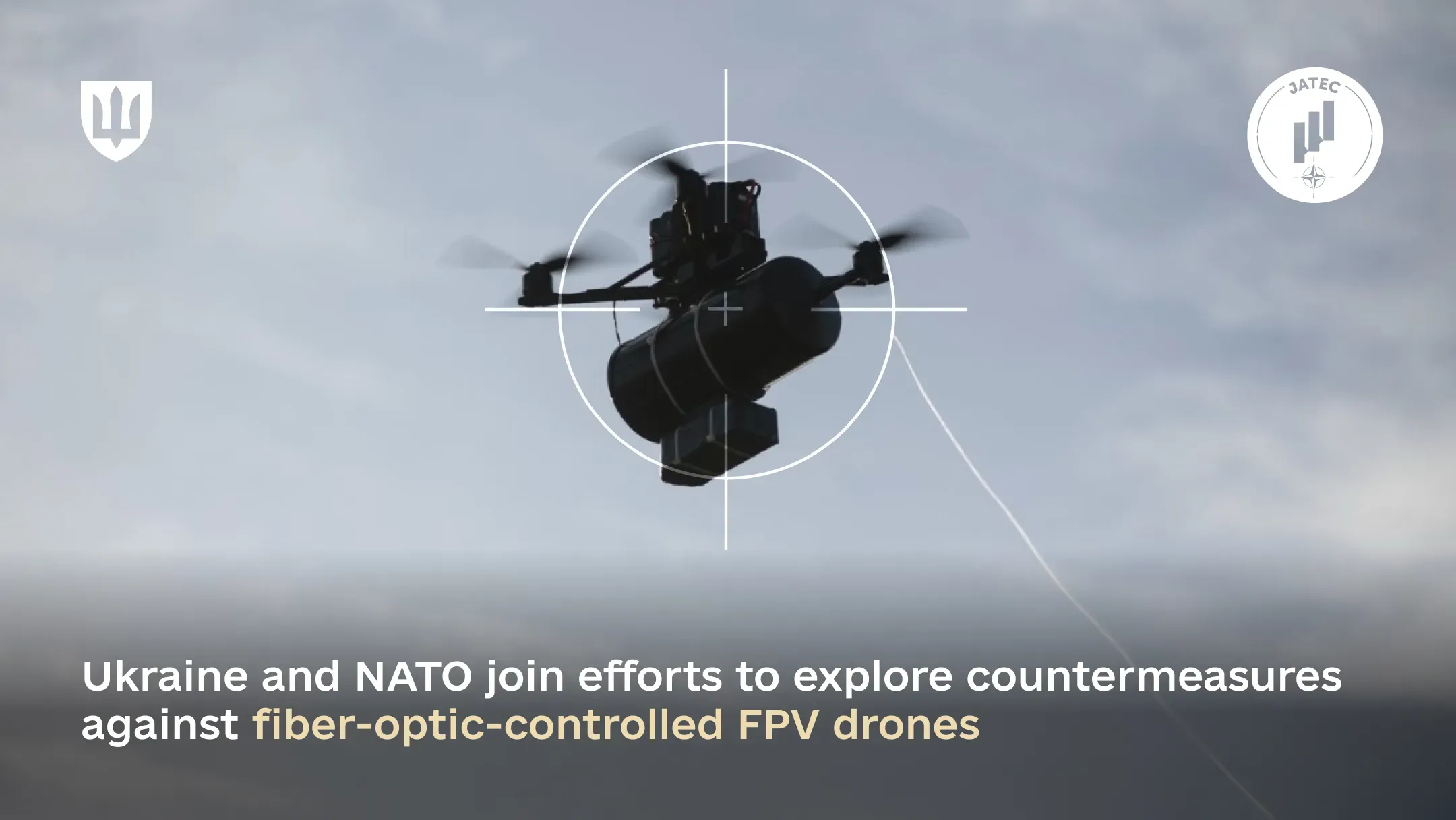Ukraine and NATO join efforts to strengthen countermeasures against fiber-optic-controlled FPV drones

The NATO-Ukraine Joint Analysis, Training, and Education Centre (JATEC), in collaboration with NATO’s Allied Command Transformation (ACT), announces the next NATO Innovation Challenge hackathon.
The hackathon, scheduled for 20 June in Tallinn, Estonia, builds on Ukraine and NATO's efforts to develop effective countermeasures against modern aerial threats. The previous NATO Innovation Challenge focused on countering guided aerial bombs (GABs).
This upcoming competition focuses on countering fiber-optic-controlled FPV drones, one of the most pressing threats in contemporary warfare. These drones are resistant to conventional electronic warfare measures, posing significant challenges to both Ukraine’s Defence Forces and NATO forces.
In response to these challenges, the JATEC team has launched an initiative to identify cutting-edge technologies for detecting, tracking, and neutralizing these aerial threats. The deadline for submitting applications is 30 May.
Defence industries from NATO member states and Ukraine are invited to participate Key development areas include: systems for detection and prioritization (radar, optical, acoustic, thermal, hybrid), fast and accurate tracking of small, high-speed targets, and both kinetic and non-kinetic defeat systems (including directed energy, nets, and smart munitions).
During the preliminary selection phase, only applications from organizations headquartered in NATO member states will be considered, and team representatives must be citizens of NATO member states. Nevertheless, Ukrainian organizations are invited to apply, with their submissions potentially considered for integration at later stages of the competition.
The organizers encourage the development of cutting-edge concepts, systems, and integrated architectures to detect, guide, track, and neutralize fiber-optic-controlled FPV drones.
Proposed technological solutions must meet several criteria, including:
- Capable of detecting drones within a 500-meter range;
- Capable of operating effectively day and night, as well as in adverse weather conditions;
- Be lightweight, with a maximum weight of 100 kg;
- Be cost-effective, with a cost not exceeding USD 100,000.
Winners will have the opportunity to present their solutions to NATO experts, contribute significantly to strengthening the defense capabilities of Ukraine and allied nations, establish partnerships with leading NATO innovation centers, and unlock new prospects for technology development.
Finalists will be announced on June 5, with selected technological solutions presented on June 20 in Tallinn, Estonia.
Registration for participation is available here.